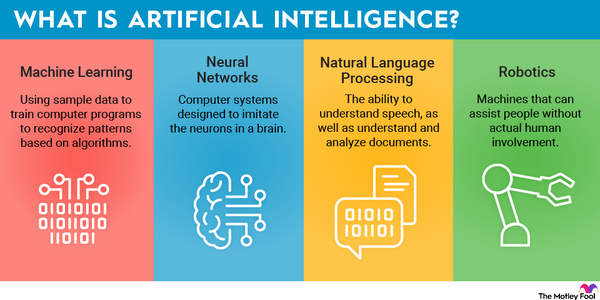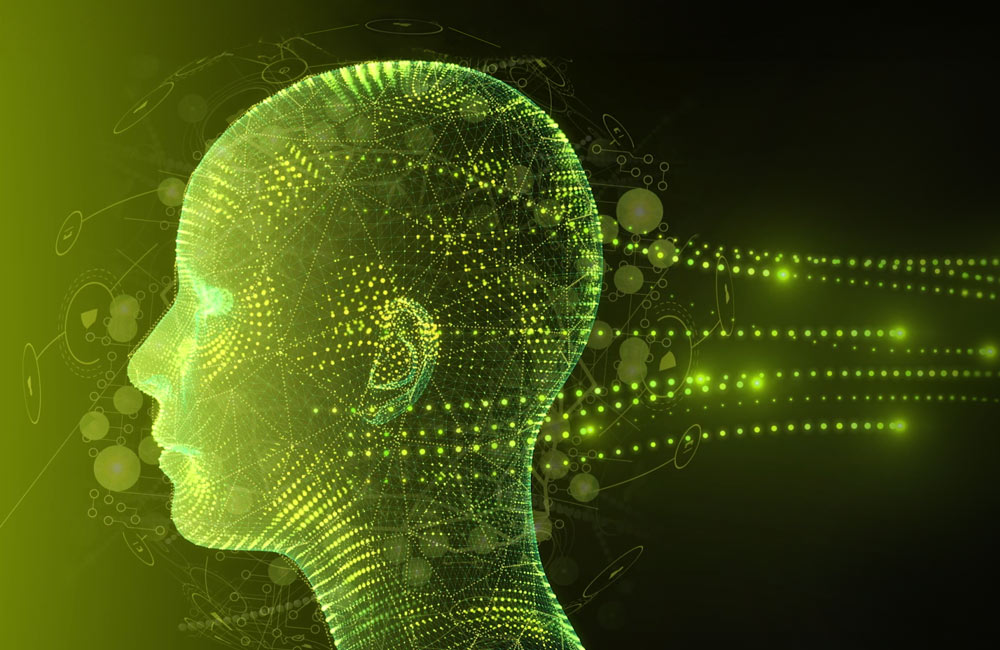
We might generate income when you click on links to our partners. Find out more.

What is artificial basic intelligence (AGI), and why does it matter? As one of the most talked-about subjects in innovation today, it has actually stimulated a race among leading business like OpenAI and Google to turn this innovative concept into reality. Understanding AGI is very important because it has the prospective to revamp markets, impact our society in extensive methods, and alter the method we interact with innovation. Here's what you require to learn about what it might be able to do, how it may transform markets and fields, and the substantial challenges facing its development.

KEY TAKEAWAYS
• AGI differs from standard AI in essential methods in that it would have the ability to believe, learn by itself, and adjust to brand-new difficulties like people unlike conventional AI, which is developed for specialized jobs and operates within a limited scope. It requires human beings to update and refine capabilities. (Jump to Section).
• Once it becomes a truth, AGI would be able to make remarkable advances in a number of fields, consisting of health care, research, and financing sectors. (Jump to Section).
• Creating AGI is tough due to the research study challenges that include technical, ethical, and social issues. Addressing these obstacles is central to maintaining the safe and favorable development of this innovation. (Jump to Section)
Featured Partners: Expert System Software
Discover more
TABULATION
What is Artificial General Intelligence (AGI): A Clear Definition.
Understanding AGI vs Traditional AI.
Potential Applications of Artificial General Intelligence.
Challenges in Artificial General Intelligence Research.
3 Introductory AGI Courses to Consider.
Frequently Asked Questions (FAQs).
Bottom Line: Why Knowing What Is Artificial General Intelligence Matters.
What is Artificial General Intelligence (AGI): A Clear Definition
Artificial basic intelligence, or AGI, describes a kind of expert system (AI) that can translate, find out, and carry out any cognitive job that a human can do. Unlike today's AI, which is constructed to handle specific tasks like advising items or processing data, AGI would be able to adjust to brand-new challenges and apply understanding throughout various fields. Simply put, this innovative type of AI would believe and reason like a human. While AGI holds great potential, it's worth noting that it is still an idea today, without any totally developed systems available yet.
Key Capabilities of Artificial General Intelligence
AGI would have a series of capabilities that imitate human intellectual functions, so it can perform jobs beyond the narrow focus of the current AI tools in the market. Some essential abilities consist of the following:
Human-Like Reasoning: The innovation would have the ability to comprehend and pl.velo.wiki make decisions the method human beings do. It would believe seriously, resolve issues, and come up with options based upon its own experiences and past interactions, comparable to how we use past understanding to new situations.
Solving Unfamiliar Problems: One of AGI's strengths is its prospective to deal with brand-new problems. Unlike traditional AI, wiki.lafabriquedelalogistique.fr which is trained to perform specific tasks, AGI would have the capability to manage problems it hasn't been directly trained to resolve. It could determine how to approach a totally new obstacle, simply like human beings do when confronted with something we've never experienced before.
Self-Learning and Adapting: AGI might tweak its skills and gain from experience, without the requirement to be manually updated every time. It would observe and evaluate data, gain from errors, and discover better methods to complete tasks over time. This indicates AGI might adapt to new circumstances and improve at jobs on its own.
Using Knowledge Across Different Areas: AGI would be able to take what it learns in one area and use it to other tasks. For example, if it found out how to resolve mathematics problems, it might use that understanding to address obstacles in other fields, like science or service. The ability to move skills across different areas is something humans do naturally and would make the technology versatile in diverse sectors.
Understanding and Responding to Emotions: suvenir51.ru Recognizing and reacting to human emotions would likewise be within AGI's capabilities. This would be crucial in settings where understanding people's feelings matters, such as health care, customer service, or social circumstances. By responding to emotions appropriately, AGI would be better equipped to work with humans in a reliable way.
Understanding AGI vs Traditional AI
The table listed below supplies a picture of the significant differences between AI and conventional or narrow AI by highlighting their capabilities, adaptability, and current status.
AGI would have the capability to think, learn autonomously, and adjust to brand-new challenges like people. However, it is still theoretical and has not been realized yet. On the other hand, standard AI is built for particular tasks and runs within a repaired scope. It can not adapt to new tasks without human input.
For example, an AGI could learn to diagnose medical conditions, then use that knowledge to develop tailored treatment plans-and even adjust its approach based on the client's progress. Additionally, it could apply this problem-solving capability to jobs in completely various fields, such as creating service techniques or recommending on ecological preservation. On the other hand, traditional AI, like a diagnostic tool, can just analyze medical information for specific conditions. It can not adapt to other areas or improve on its own.
Potential Applications of Artificial General Intelligence
While AGI isn't here yet, its potential applications span many fields and hold fantastic pledge of extreme improvements in lots of sectors. Without being restricted to particular jobs like narrow AI, AGI would be extremely flexible and could use its capabilities to solve multi-disciplinary problems. It might conquer obstacles currently beyond the abilities of existing AI applications.
Transforming Healthcare
AGI would change the video game in health care by detecting complex and unusual illness with higher accuracy, even in cases where signs are ambiguous or overlap with numerous conditions. It could produce highly individualized treatment strategies by studying client history, hereditary info, and real-time health information. In addition, AGI could accelerate drug discovery, identifying possible treatments in weeks instead of years by processing enormous datasets and running predictive simulations.
Advancing Scientific Research
In clinical research, AGI would have the ability to mimic experiments, analyze elaborate datasets, and generate hypotheses. It might speed up advancements in quantum physics, genomics, and climate science. By integrating knowledge from various domains, the technology might discover connections and services that might otherwise go unnoticed by traditional AI.
Improving Industry
Organizations in the industrial field could use AGI to improve performance in real-time by managing entire supply chains. It would anticipate and fix disruptions before they happen. In production, it might manage self-governing factories, optimizing production processes while keeping security and quality standards. Its ability to get used to altering scenarios would make it an indispensable tool in commercial environments.
Enhancing Business Strategy
AGI could improve company decision-making by assessing market patterns, consumer habits, and operational information to discover opportunities and threats. In contrast to narrow AI systems, AGI would innovate solutions to challenging company issues, such as handling financial uncertainty or forecasting long-term market shifts. Its capability to gain from diverse sources would empower businesses to remain competitive.
Redefining Finance
In the monetary sector, AGI might increase forecasting accuracy by spotting patterns in vast amounts of financial information, so investors and organizations can make educated choices. It would likewise have the ability to find scams in real-time by recognizing subtle anomalies that standard AI systems may miss. Additionally, AGI might construct more robust financial models, factoring in complex variables and situations to reduce dangers.
Challenges in Artificial General Intelligence Research
Developing AGI is one of the most enthusiastic goals in innovation, however it comes with many problems. These challenges include technical, ethical, and societal areas, making AGI advancement an intricate and multi-faceted process. Overcoming the following difficulties is tantamount to making sure security, upholding ethical standards, and carefully planning how AGI's intro and usage will impact people, wiki.lafabriquedelalogistique.fr industries, and society as a whole:
Making AGI Truly Flexible: AGI would require to handle a vast array of problems and adapt to brand-new scenarios, similar to human beings. Building a system of flexibility is extremely tough due to the fact that present AI tools are not developed to believe or discover at this level of sophistication.
Massive Computing Needs: To duplicate human intelligence, AGI would require huge amounts of computing power to process information from varied sources quickly. Figuring out how to make such systems powerful and efficient enough for real-world usage is a significant obstacle.
Understanding Human Intelligence: We don't totally understand how human thinking works, specifically complicated aspects like intuition or awareness. Without this understanding, it's challenging to build devices that can emulate human-like thinking.
Making AGI Safe and Ethical: AGI could potentially be misused, like to create prejudiced systems or damaging tools like self-governing weapons. Researchers must ensure that AG is developed responsibly and follows rigorous ethical guidelines. This is a tricky task that demands international collaboration.
Keeping It Under Control: There's a danger AGI might act in methods we do not expect, especially since it would have the capability to learn and alter over time. Ensuring that these systems stay aligned with human worths and are safe to use is one of the greatest difficulties in AGI research.
Impact on Jobs and Society: If AGI becomes a reality, it might replace jobs or trigger economic inequality by benefitting some groups more than others. Getting ready for these social impacts is simply as essential as constructing the technology itself.
High Costs and Resources: Researching AGI necessitates a great deal of money, time, and expert knowledge. Not all organizations have these resources, decreasing development and leaving smaller sized companies out of the race.
3 Introductory AGI Courses to Consider
Familiarizing yourself with AGI can give you an one-upmanship, whether you want to advance your career in AI or just want to remain informed about emerging innovations. The following introductory courses can help you get a deeper understanding of what synthetic basic intelligence is, so you can strengthen your understanding about this appealing AI advancement.
Artificial General Intelligence (AGI): An Introductory Course on Udemy
This Udemy course offers an essential understanding of AGI, suitable for newbies with no previous experience. The course covers relevant subjects, consisting of the structures of AI, the essentials of AGI, and the most recent trends in the field. It likewise checks out the advantages, dangers, and obstacles connected with AGI, equipping you with insights into what the innovative technology can accomplish. The whole course consists of 15 lectures and can be completed in roughly 45 minutes. Upon conclusion, you will receive a certificate to strengthen your qualifications in the job market. This initial course costs $24.99.
Intro to Artificial General Intelligence (AGI): Future of AI on Udemy
Udemy's initial course uses a detailed summary of AGI for students with no technical background. It talks about the historical context and foundation of AGI, the differences between narrow AI and AGI, and ethical considerations surrounding its development. In addition, it resolves future trends in AI and AGI, shedding light on the difficulties and chances that lie ahead. Spanning one hour and 46 minutes, pipewiki.org the course consists of 39 lectures, on-demand video, and downloadable resources. It also has a practical test at the end to enhance your understanding. You will be granted a certificate once you complete the course. It is offered as part of Udemy's premium strategies, beginning at $20 monthly, or as a different purchase of $49.99.
Artificial General Intelligence (AGI) on Udemy
This Udemy course brings a clear and succinct intro to the subject, with on-demand videos and 22 lectures. It elaborates on significant AGI principles and the role of robotics in AGI advancement. It likewise takes a look at the ethical, software application, and hardware obstacles in producing AGI. The course provides quizzes to check your understanding and a certificate of conclusion. Priced at $44.99, it is made for learners at any level, wifidb.science making it available and gratisafhalen.be valuable for anybody who wishes to discover more about AGI.
Frequently Asked Questions (FAQs)
Achieving AGI might transform industries, improve decision-making, and lead to considerable developments in innovation. However, it also raises concerns about ethics, task displacement, and the need for appropriate policy to make sure it is developed securely and properly.
Experts disagree on how far we are from attaining AGI. Sam Altlman of OpenAI thinks in 2025, AI agents may sign up with the workforce, ultimately paving the method to AGI development. On the other hand, a survey of AI scientists puts the typical estimate around 2047. Despite fast AI improvements, present systems are still restricted to narrow tasks and lack the broad, versatile reasoning of humans-so AGI is likely still years away.
The idea of AGI totally replacing humans is still discussed. Even though it's likely that AGI will help us by taking control of repeated jobs, there is a possibility that it might displace certain tasks. That stated, rather than totally changing human beings, AGI is expected to work alongside us, handling technical obligations while we focus on jobs that require creativity and compassion. At the end of the day, the results of AGI will depend upon how society picks to handle and integrate it.

Bottom Line: Why Knowing What Is Artificial General Intelligence Matters
Understanding synthetic general intelligence is essential because this innovation could change markets, fix challenging issues, and transform how we use AI. But as we start to establish AGI, we must thoroughly address a number of difficulties, including technical concerns, ethical concerns, and its overall influence on society. By finding out about AGI's potential and risks, we can work towards making sure it is developed responsibly and used in ways that would benefit everybody.









